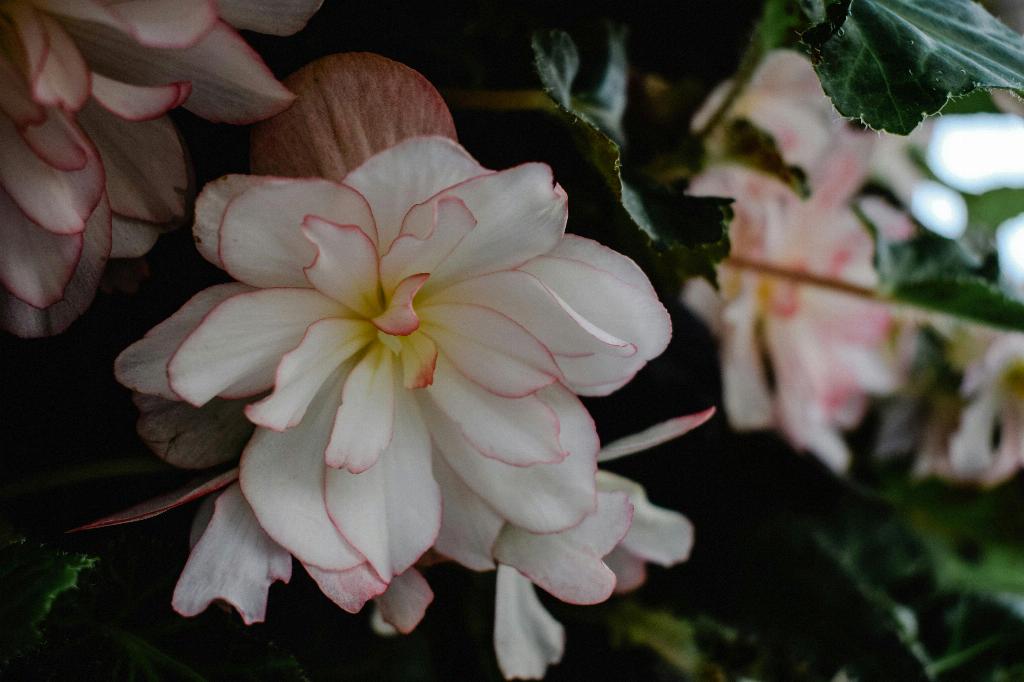Begonias, known for their vibrant colors and wide variety of species, are a popular choice for gardeners looking to add beauty and elegance to their outdoor spaces. However, for those living in regions where deer are prevalent, the question of whether deer eat begonias can be a cause for concern. In this article, we will delve into the interaction between deer and begonias, exploring the potential risks posed by deer, factors influencing their diet choices, and strategies to protect your begonias from these graceful yet potentially destructive creatures.
Overview of Begonias
Begonias encompass a large genus of flowering plants with over 1,800 known species, ranging from fibrous-rooted annuals to tuberous perennials. These plants are cherished for their showy blooms, unique foliage, and versatility in various gardening settings. With their ability to thrive in shade or partial shade, begonias are a favorite choice for adding a pop of color to shady garden spots where other plants may struggle to flourish.
Importance of Knowing if Deer Eat Begonias
Understanding whether deer have a penchant for munching on begonias is crucial for gardeners seeking to maintain the integrity of their floral displays. Deer browsing can be detrimental to begonias, causing irreparable damage to leaves, stems, and blooms. Being aware of deer’s dining habits can help gardeners take proactive measures to safeguard their begonias and preserve the aesthetic appeal of their outdoor spaces.
Potential Risk of Deer to Begonias
Deer pose a significant threat to begonias and other garden plants due to their voracious appetites and lack of discrimination in choosing their meals. When natural food sources are scarce or during specific seasons, deer may turn to garden plants, including begonias, as a readily available food option. This foraging behavior can result in unsightly damage to begonias, compromising their health and overall appearance.
Factors Affecting Deer’s Diet Choices
Several factors influence whether deer will consume begonias in a particular garden. Deer-resistant begonias typically possess characteristics that make them less appealing to deer, such as fuzzy stems or leaves, strong scents, or bitter-tasting foliage. On the other hand, deer may show a preference for certain begonias based on factors like plant species, local environment, seasonal food availability, and past feeding experiences.
Types of Begonias Deer May or May Not Eat
While not all begonias are deer-resistant, some varieties are less attractive to deer due to their physical or chemical properties. Begonias with waxy or leathery leaves, hairy textures, or strong odors are more likely to deter deer browsing. Popular deer-resistant begonia species include Angel Wing Begonias, Dragon Wing Begonias, and Rex Begonias, which possess characteristics unappealing to deer’s palates.
Prevention and Solutions
To protect begonias from deer damage, gardeners can employ various deterrents and gardening practices aimed at deterring deer from feasting on their beloved plants. Strategies such as installing fencing, using deer repellents, planting deer-resistant species, and creating barrier plants can help mitigate the risk of deer invasion and preserve the beauty of begonias in the garden.
Creating a deer-resistant garden involves selecting plants that deer find unappealing, strategically placing plants based on deer behavior patterns, and implementing garden design elements that discourage deer browsing. By incorporating these proactive measures, gardeners can cultivate a thriving garden while minimizing the impact of deer on their begonias and other cherished plants.
For areas highly prone to deer activity, gardeners can opt for safe alternatives to begonias that are less attractive to deer. Choosing deer-resistant plants with similar aesthetic qualities as begonias, such as salvia, lavender, or ornamental grasses, can offer an alternative garden palette that withstands deer grazing while still enhancing the visual appeal of outdoor spaces.
Conclusion
In conclusion, the question “Do deer eat begonias?” highlights the potential threat deer pose to begonias and the importance of safeguarding these delicate plants from deer damage. By understanding deer behavior, identifying deer-resistant begonia varieties, and implementing protective measures, gardeners can cultivate thriving begonia displays while coexisting harmoniously with deer populations.
With a proactive approach to deer deterrence and garden management, gardeners can enjoy the beauty and charm of begonias without the worry of deer-induced damage. By creating a deer-resistant garden and making informed plant choices, gardening success with begonias is within reach for enthusiasts seeking to cultivate vibrant and flourishing outdoor landscapes.

